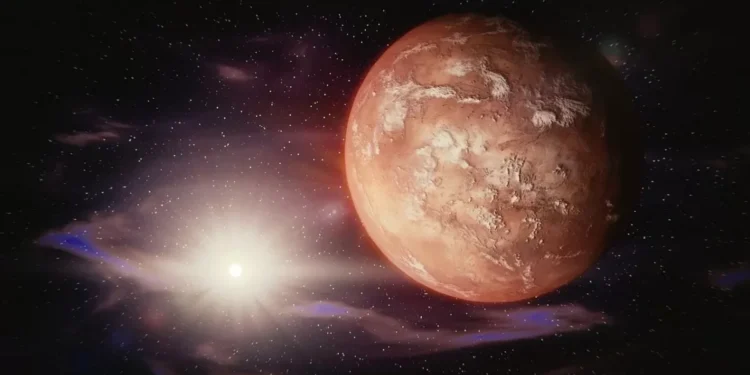MIT Physicists Propose Theory That Mars’ Orbit May Wobble Due to Primordial Black Holes
Mars, the fourth planet from the sun, has always been a subject of fascination for scientists and space enthusiasts alike. From its potential to harbor life to its unique geological features, there is no shortage of mysteries surrounding the red planet. And now, a team of physicists from the Massachusetts Institute of Technology (MIT) has proposed a groundbreaking theory that could add another layer to the enigma of Mars.
According to the team’s research, Mars’ orbit may experience a slight wobble due to the presence of primordial black holes. These black holes, which are believed to have formed just after the Big Bang, could also be a major source of dark matter in the universe. This theory builds on the idea that these ancient black holes pass through our solar system and cause a gravitational effect that can be detected by current technology.
The concept of primordial black holes has been around for decades, but it has always been a subject of debate and speculation. These black holes are thought to have formed in the early stages of the universe, when the density of matter was extremely high. As the universe expanded and cooled, these black holes would have stopped growing and become dormant. However, their existence has never been confirmed, and their potential role in the universe remains a mystery.
But now, the MIT physicists have proposed a new way to detect these elusive black holes. By studying the orbits of planets in our solar system, particularly Mars, they have found evidence that suggests the presence of primordial black holes. The team used data from NASA’s Mars Reconnaissance Orbiter, which has been orbiting the red planet since 2006, to track the planet’s movements over the past decade.
Their analysis revealed that Mars’ orbit deviates slightly from what is predicted by the laws of gravity. This deviation, known as the “precession of the perihelion,” has been observed in other planets as well, but it has always been attributed to the gravitational pull of other planets or the sun. However, the MIT team believes that this deviation could also be caused by the passing of primordial black holes.
The researchers explain that as these ancient black holes pass through our solar system, they would exert a gravitational pull on the planets, causing their orbits to wobble. This effect would be most noticeable on Mars, as it is the closest planet to the asteroid belt, where these black holes are believed to be concentrated. And since Mars has a relatively small mass compared to other planets, its orbit would be more easily affected.
The team’s theory is further supported by the fact that the precession of the perihelion is not constant, but rather varies over time. This is consistent with the idea that the black holes are passing through our solar system at different times, causing the orbit to wobble at different rates.
If this theory is confirmed, it would not only provide evidence for the existence of primordial black holes, but it could also shed light on the mystery of dark matter. Dark matter, which makes up about 85% of the total matter in the universe, has never been directly observed, but its presence is inferred through its gravitational effects on visible matter. The team believes that primordial black holes could be a major source of dark matter, which would explain their elusive nature.
The potential implications of this theory are vast. Not only could it help us better understand the formation and evolution of the universe, but it could also have practical applications. For example, if we can detect and track the movements of these black holes, we could potentially use them as a tool for space navigation.
However, the team’s research is still in its early stages, and more data and analysis are needed to confirm their theory. But the fact that they have proposed a new way to detect primordial black holes is a significant step forward in our understanding of the universe.
The MIT physicists’ theory has sparked excitement and curiosity in the scientific community, and it has the potential to revolutionize our understanding of the cosmos. It is a testament to the power of human curiosity and the endless possibilities of scientific exploration. As we continue to unravel the mysteries of the universe, we can only imagine what other groundbreaking discoveries await us.





